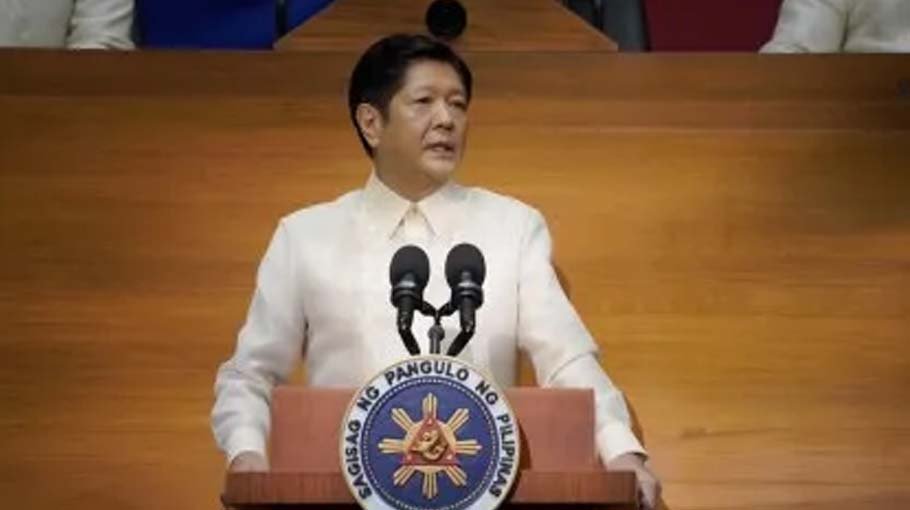Philippine President bats for digital tax in Congress speech to cut debt

Philippine President Ferdinand Marcos Jr pushed for a tax on digital service providers to help narrow budget deficit and debt levels in his first speech before Congress as he pledged to prioritise fiscal management.
"Our tax system will be adjusted in order to catch up with the rapid development of the digital economy," Mr Marcos Jr said in his annual State of the Nation Address on Monday (July 25).
Imposing value-added tax on digital services, if approved by Congress, will yield an initial 11.7 billion pesos (SS$289 million) in revenue in 2023, he said.
This is Mr Marcos Jr's first revenue-generating proposal as he targets to bring down the country's outstanding debt below 60 per cent of gross domestic product by 2025 while sustaining pandemic recovery in an environment of rising prices and declining local currency.
The South-east Asian nation is aiming to expand GDP by 6.5 per cent to 7.5 per cent this year and grow by as much as 8 per cent through the end of his term in 2028, Mr Marcos Jr said, reiterating projections made by his economic team earlier this month.
The budget deficit should narrow to 3 per cent by 2028 while poverty rate should decline below 10 per cent by then, he said.
The Philippines won't be implementing another lockdown, Mr Marcos Jr said, as he vowed to build the country's healthcare capacity while supporting the welfare of nurses and doctors.
The country will also resume full in-person education, the president said, without providing a definite time line.
The trade department is in talks with companies that will produce generic medicines to bring down the cost of drugs, while the government intends to build more clinics and hospitals outside of capital Manila to bring health care closer to the people, he said.
Philippines must build new power plants and reexamine its strategy on nuclear power, Mr Marcos Jr said, citing rising demand. It must take advantage of renewable energy, such as solar and wind, and also study providing incentives for gas exploration.
The government will also look into the nation's "precarious" water supply situation and explore ventures with private companies, he said.
Other measures proposed by Mr Marcos Jr include:
- "Fully" supporting economic zones, especially for companies involved in manufacturing and healthcare,
- Aiming to make the Philippines an investment destination
- Pursuing measures to determine undervaluation, mis-invoicing of imported goods
- Streamlining the customs agency and simplifying tax payments through digitalisation.



